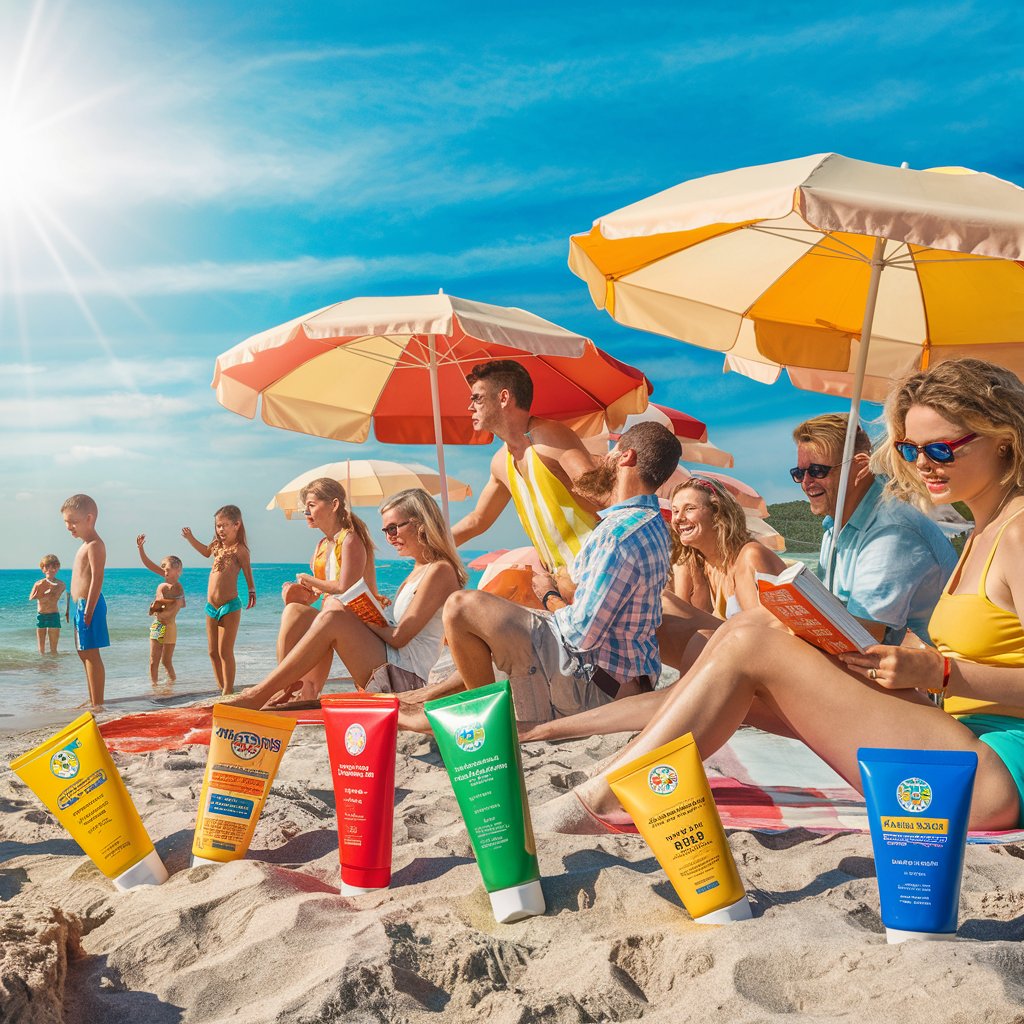Staying Safe In The Sun
Spending time outdoors is one of the best ways to enjoy the beautiful weather, but protecting your skin from harmful UV rays is important. Whether you’re hiking in the mountains, relaxing on the beach, or simply taking a stroll in the park, your skin is exposed to the sun’s rays, which can cause damage even on seemingly mild days. Always apply a broad-spectrum sunscreen with at least SPF 30, even if it’s cloudy or overcast. This type of sunscreen protects against both UVA and UVB rays, which can cause premature aging and skin cancer.

Many people underestimate the sun’s strength on cloudy days, but up to 80% of UV rays can penetrate through clouds, leading to sunburn and increasing the risk of skin cancer. This means that overcast skies are no excuse to skip sunscreen. Additionally, activities like swimming or sweating can wash away sunscreen, so it’s important to reapply every two hours or more often if you’re in the water or perspiring heavily. Wearing protective clothing, such as wide-brimmed hats, sunglasses, and long sleeves, can also help shield your skin from harmful rays. These precautions allow you to enjoy your time outside while keeping your skin healthy and safe.
What Sunscreen Should You Use?
- Choose Broad-Spectrum Sunscreen: Ensure your sunscreen protects against UVA and UVB rays.
- SPF 30 or Higher: Use sunscreen with at least SPF 30 for adequate protection.
- Water-Resistant Formula: Opt for water-resistant sunscreen if you plan to swim or sweat.
Visit the American Academy of Dermatology to learn more about picking the right sunscreen for you.

How Often Should You Apply Sunscreen?
- Apply Every Two Hours: Reapply sunscreen every two hours or more frequently if swimming or sweating.
- Don’t Forget your ears, neck, and feet: Apply sunscreen to these often-missed areas.
- Use Generously: Apply about one ounce (a shot glass full) of sunscreen to cover your entire body.
What Are the Best Times to Avoid Direct Sun Exposure?
- Seek Shade During Peak Hours: Avoid direct sun exposure between 10 AM and 4 PM when UV rays are strongest.
- Use Beach Umbrellas or Tents: Bring shade with you by using umbrellas or beach tents. The City of Myrtle Beach implemented a shading device policy in 2014. To learn more about other beach rules for umbrellas and tents, please visit the Beach Conditions & Laws and Chair/Umbrella Rentals & Accessibility webpages.
- Wear Protective Clothing: Long-sleeved shirts, wide-brimmed hats, and sunglasses provide additional protection.
How Can You Stay Hydrated?
- Drink Plenty of Water: Staying hydrated is crucial, especially in the heat. Drink water frequently.
- Avoid Alcohol and Caffeine: Both can dehydrate you, so limit your intake while on the beach.
- Bring a Reusable Water Bottle: Bring a reusable water bottle to refill as needed.
What Are the Signs of Heat-Related Illnesses?
- Recognize Symptoms of Heat Exhaustion: Symptoms include heavy sweating, weakness, dizziness, nausea, and headaches.
- Know the Signs of Heatstroke: Heatstroke symptoms include a high body temperature, confusion, rapid pulse, and loss of consciousness. Seek medical attention immediately.
- Take Action Quickly: If you or someone else shows signs of heat-related illness, move to a cool place, hydrate, and seek medical help if needed.
Why Is It Important to Protect Your Eyes?
- Wear UV-Blocking Sunglasses: Protect your eyes from harmful UV rays with sunglasses that block 100% of UVA and UVB rays.
- Use a Hat with a Brim: A wide-brimmed hat can provide additional shade and protection for your eyes.
How Can You Protect Children from Sunburn?
- Apply Sunscreen to Children: Use sunscreen on children aged six months and older. For babies under six months, seek shade and use protective clothing.
- Reapply Frequently: Reapply sunscreen on children every two hours or after swimming or sweating.
- Encourage Regular Hydration: Ensure children drink water regularly to stay hydrated.
What Are Some Additional Tips for Sun Safety?
- Check the UV Index: Be aware of the day’s UV index and take extra precautions when it’s high.
- Avoid Tanning Beds: Tanning beds increase your risk of skin cancer and premature aging.
- Get Regular Skin Checks: Check your skin regularly for changes or unusual moles, and see a dermatologist annually.
Stay Safe In The Sun
Staying safe in the sun is crucial for an enjoyable and healthy experience in Myrtle Beach. By following these tips, you can protect yourself and your loved ones from the sun’s harmful effects and make the most of your beach day. Remember, the sun in Myrtle Beach can be intense, especially during peak hours from 10 a.m. to 4 p.m. Applying a broad-spectrum sunscreen with at least SPF 30, wearing protective clothing, and seeking shade when the sun is at its strongest can go a long way in preventing sunburn and long-term skin damage.
Additionally, staying hydrated is just as important as protecting your skin. Bring plenty of water and drink regularly to avoid dehydration, which can be exacerbated by the sun and heat. Don’t forget to reapply sunscreen every two hours, or more frequently if you’re swimming or sweating, to maintain effective protection.
Incorporating these sun safety habits into your routine ensures that your beach adventures are filled with fun and relaxation rather than discomfort and health risks. By taking these precautions, you safeguard your health and set a great example for others to follow. Enjoy all the beauty and excitement Myrtle Beach has to offer while staying sun-safe and healthy.
Discover the hidden gems and must-see attractions of Myrtle Beach! Click the link below to uncover the best activities, dining spots, and nightlife that will make your visit unforgettable. Explore Myrtle Beach Here!
Dennis Stemmle is a bestselling author, entrepreneur, and lecturer at Coastal Carolina University. He writes about travel, college success, and entrepreneurship.
